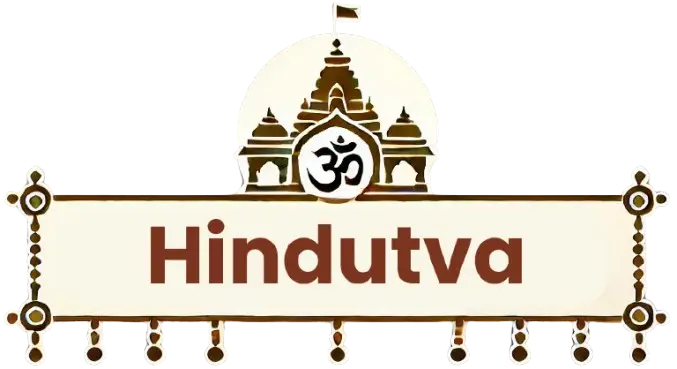Explore the challenges and solutions for planning an overseas Hindu wedding. From cultural sensitivities to logistical hurdles, this detailed guide offers practical tips, insights, and personal experiences to create a perfect blend of tradition and destination charm.
Planning a wedding can be one of the most joyous yet demanding tasks, and this sentiment is amplified when it involves organizing an overseas Hindu wedding. The beauty of Hindu weddings lies in their vibrant rituals, elaborate ceremonies, and deeply rooted traditions, but moving these elements to a foreign land introduces unique challenges. Having helped organize my cousin’s Hindu wedding in Italy, I can personally attest to the immense effort and creativity required to bring such a dream to life.

In this article, I’ll delve into the practical challenges, thoughtful solutions, and key considerations for planning an overseas Hindu wedding while sharing insights from my personal experience.
Understanding the Complexity of an Overseas Hindu Wedding
1. Navigating Cultural Sensitivities Hosting a Hindu wedding in another country involves balancing Indian traditions with the customs of the host nation. While organizing my cousin’s wedding, we found that educating the local vendors about the significance of rituals like the baraat and saat phere was vital to maintaining authenticity.
2. Logistical Challenges Transporting wedding essentials such as attire, décor, and ceremonial items to another country can be daunting. Customs regulations, shipping costs, and potential delays are all factors to consider.
3. Guest Management Managing guest accommodations, transportation, and meals for attendees traveling internationally requires meticulous planning. During my cousin’s wedding, we created a detailed itinerary to ensure smooth coordination.
Key Challenges and Practical Solutions for Overseas Hindu Wedding
1. Finding the Right Venue
One of the biggest challenges is finding a venue that complements Hindu traditions while accommodating the needs of the guests.
Solution:
- Opt for venues with open spaces for outdoor ceremonies like the mandap setup.
- Research venues that are experienced in hosting Indian weddings. Websites like WeddingWire can provide venue recommendations.
2. Hiring Vendors Familiar with Hindu Weddings
Local vendors may not always understand the specific requirements of Hindu rituals.
Solution:
- Work with a wedding planner who specializes in destination weddings.
- Provide detailed instructions and visuals to decorators, caterers, and photographers.
- Use platforms like WedMeGood to find Indian wedding specialists abroad.
3. Transporting Ceremonial Items
Essential items like the kalash, kumkum, and traditional attire need to be transported overseas.
Solution:
- Ship items well in advance to account for delays.
- Check with local Indian communities or temples in the destination country for borrowing ceremonial items.
Incorporating Local Flavors into Hindu Weddings
Blending local cultural elements with Hindu traditions can make the wedding experience more memorable. For instance:
- At the Italian venue, we incorporated local florals like lavender into the traditional mandap décor.
- The wedding menu included a fusion of Indian and Italian cuisine, such as risotto served with paneer tikka. This delighted both Indian and local guests.
Tips for Managing Costs
1. Set a Realistic Budget
Destination weddings can escalate costs, so it’s crucial to set a realistic budget early on. Tools like The Knot’s Wedding Budget Planner can help.
2. Leverage Group Discounts
Booking flights and accommodations in bulk can save costs. Airlines often offer group discounts for wedding parties.
3. Consider Off-Peak Seasons
Hosting the wedding during off-peak travel seasons can significantly reduce venue and travel expenses.
Ensuring Smooth Execution
1. Use Technology for Coordination
Tools like Google Sheets and wedding planning apps can help track RSVPs, schedules, and vendor contracts. During the wedding, we relied on WhatsApp groups to keep everyone updated in real-time.
2. Conduct a Site Visit
Visiting the venue before the wedding allows you to resolve potential issues. During our visit, we discovered that the venue needed more power outlets for the DJ setup.
3. Assign a Local Liaison
Having someone local who understands the culture and speaks the language can be invaluable. They can mediate with vendors and handle last-minute requests.
Balancing Rituals with Local Laws
Each country has its legalities regarding events and gatherings. For example, setting off fireworks during weddings may require permits in some places. During our Italian wedding, we ensured all customs and laws were respected.
Pro Tip: Connect with local Hindu temples or communities for guidance. They can provide insights into accommodating Hindu traditions in the host country.
Managing Guest Expectations
1. Offer Clear Communication
Provide guests with all necessary details, including travel guidelines, accommodation options, and dress codes. A wedding website can serve as a one-stop information hub.
2. Arrange Welcome Gifts
Welcome kits with essentials like maps, local SIM cards, and snacks make guests feel cared for.
Adapting Rituals to Fit the Destination
Some rituals may need to be modified due to space or cultural constraints. For example:
- In a compact venue, the baraat can be replaced with a symbolic procession.
- If open flames are restricted, LED lamps can be used instead of a traditional fire for the havan.
My Personal Takeaways
Reflecting on my cousin’s wedding, here are a few lessons:
- Flexibility is Key: Not everything will go as planned, but being adaptable ensures the celebration remains joyous.
- Cherish the Moment: Amid the hustle, take time to enjoy the rituals and connect with loved ones.
- Cultural Exchange: An overseas Hindu wedding isn’t just about carrying traditions abroad; it’s also an opportunity to share and celebrate culture with a global audience.
Planning an overseas Hindu wedding is no small feat, but it’s a deeply rewarding journey. With meticulous planning, thoughtful execution, and an open heart, you can create a celebration that blends tradition with the charm of a foreign locale.
Author:
Priya Sharma – Political Analyst & Social Commentator

